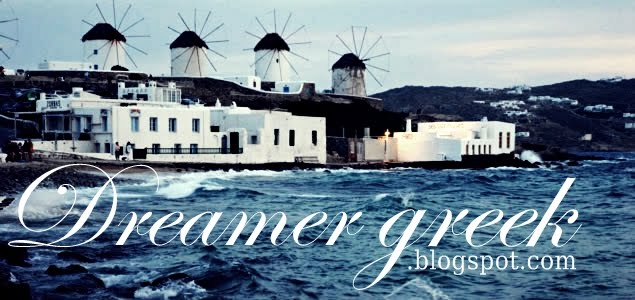But the beginnings of Christmas in Greece go back to the time of St. Nicholas, who was known as the patron saint of sailors. According to Greek tradition, his clothes were soaked with brine, his beard drenched with saltwater, and his face is covered with perspiration because he had been fighting the storms and waves to reach sinking ships and rescue drowning men from the sea. Even today there is still an old custom where many ships never leave port without a St. Nicholas icon carried in the boat.
In Greece, there are many Christmas customs that are similar, yet slightly different from the West. Such as the custom on Christmas Eve where village children travel from house to house offering good wishes and singing 'kalanda', the equivalent of Christmas carols. The children often accompany the songs using small metal triangles and little clay drums. Afterwards, the children are usually given sweets or coins in appreciation.
In Greek Christmas, the feast itself becomes the main attraction by both adults and children alike. Lamb and pork are roasted in ovens and open spits, and on almost every table are loaves of 'christopsomo' ('Christ bread'). This bread is usually made in large sweet loaves of various shapes and the crusts are engraved and decorated in some way that reflects the family's profession.
In Greek homes, Christmas trees are not commonly used, but recently have become more popular. In almost every house though- the main symbol of the season is a shallow wooden bowl with a piece of wire is suspended across the rim; from that hangs a sprig of basil wrapped around a wooden cross. A small amount of water is kept in the bowl to keep the basil alive and fresh. Once a day, a family member, usually the mother, dips the cross and basil into some holy water and uses it to sprinkle water in each room of the house. This ritual is believed to keep the 'Killantzaroi' (bad spirits) away. There are a number of beliefs connected with these spirits, which are supposed to be a species of goblins who appear only during the 12-day period from Christmas to the Epiphany (January 6). These creatures are believed to come from the center of the earth and to slip into people's house through the chimney. More mischievous than actually evil, the Killantzaroi do things like extinguish fires, ride astride people's backs, braid horses' tails, and sour the milk. To further repel the undesirable sprites, the hearth is kept burning day and night throughout the twelve days. Gifts are finally exchanged on St. Basil's Day (January 1). On this day the "renewal of waters" also takes place, a ritual in which all water jugs in the house are emptied and refilled with new "St. Basil's Water." The ceremony is often accompanied by offerings to the 'naiads', spirits of springs and fountains. All in all, Christmas is an enjoyable part of Greece toady and one that should be experienced by all.



